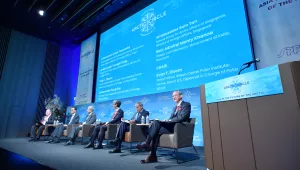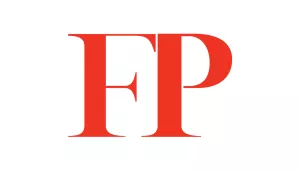Your search did not return any results. Please try another search.
by Calvin Heng and Eyck Freymann
Policy Briefs
from
Belfer Center for Science and International Affairs, Harvard Kennedy School
19 minute read

Arctic Circle/Flickr
by Eyck Freymann
Blog Post
from
Belfer Center for Science and International Affairs, Harvard Kennedy School
11 minute read

Russian Defense Ministry Press Service via AP
Seminar
Open to the Public
Online & In-Person
-
Rubenstein Building - David T. Ellwood Democracy Lab, Room 414AB
In The News
from
Foreign Policy
In The News
from
The Wire China

NOAA Office of Ocean Exploration and Research, 2015 Hohonu Moana






